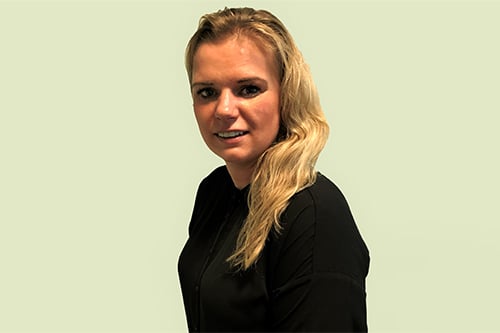

“There’s a way to do it better – find it.” This quotation is widely attributed to the inventor and businessman Thomas Edison, but for businesses throughout the insurance sector, this has become an underlying mantra as they rapidly adopt new working practices and digital technologies during the COVID-19 lockdown. The long-term nature of such changes and the impact they may have on traditional means of doing business is still unknown but the speed with which the sector has responded has been widely praised.
Read more: Insurers speed up innovation amid pandemic
When it comes to the new technologies being employed by insurers and brokers, most have been pre-existing services which were available but not utilised prior to the lockdown. From Zoom to Teams to the use of drone technologies, COVID-19 has encouraged the insurance sector, which has often contended with the label of being slow to innovate, to embrace new solutions.
Rebecca Jones (pictured above), owner and co-founder of the drone services provider, Iprosurv, noted that while, from a financial services perspective, insurance has lingered behind in terms of digitisation there is clearly new momentum. Insurance businesses are starting to embed tech processes into their business models, and this has evidently been accelerated by the lockdown.
“We’re seeing parts of the supply chain suddenly being forced to use tech services,” she said. “And previously they tended to be wary or apprehensive about these services or just to dabble with them as opposed to making them a fundamentally integrated process.
“It used to be a case of ‘we’ll try every other way we can do it first, and then we’ll adopt a tech perspective.’ [The lockdown] has been of benefit because the preconceptions about drones and tech in general have often been indifferent at best, and negative at worst, but now our clients have been in a position of being able to see what [these services] can really do.”
Jones outlined how Iprosurv, which is approved by the Civil Aviation Authority (CAA), is something of a pioneer in the drone services sector in terms of its insurance applications. Since its start-up in 2014, the business has seen dramatically increased demand for its drone inspection services and a definite uptick in the market in terms of adopting this technology. Iprosurv’s national network of individual commercial operators deploy drones on demand throughout the UK and offer a variety of services from damage assessment to risk management analysis.
The drone is the ‘tool in the box’, she said, capable of quickly capturing data and digital imagery which can be analysed to form a report. The range of applications of these technologies is vast and, for clients during the lockdown, this is an opportunity to explore alternative solutions so they have the data necessary to progress their claims or create risk management surveys on certain structures.
At the beginning of the COVID-19 crisis, Iprosurv worked with the CAA as it identified that it would need to make site safety assurances and implement changes to the ways in which it communicated with its clients. There is some apprehension from a policyholder’s perspective regarding people entering their property during COVID-19 as they may be self-isolating, and so the hands-off approach has been useful.
By ensuring that all contact regarding an inspection is carried out prior to the site-visit, she said, the business is able to ensure that drone pilots operate in sheer isolation, and that there is no interaction from a policyholder’s perspective and minimal contact with the associated site.
“One of the biggest challenges that we have is getting people to dip their toe into new services,” she said. “There has been a little bit of apprehension in terms of what drones can do and what data will be received and whether or not it will be good enough. But what we find is that once clients have used the technology, they like it and their feedback is amazing and they are asking themselves why they didn’t use it sooner.
“It’s difficult to find positives out of this pandemic but as a digital and tech-enabled provider, this crisis has forced the industry to embrace and experience new technologies and the way they can help the customer experience and how, from the customer’s perspective, these solutions can help facilitate faster and more enhanced decision making. That is a real positive and I would like to see that the industry as a whole really embrace tech moving forward.”
